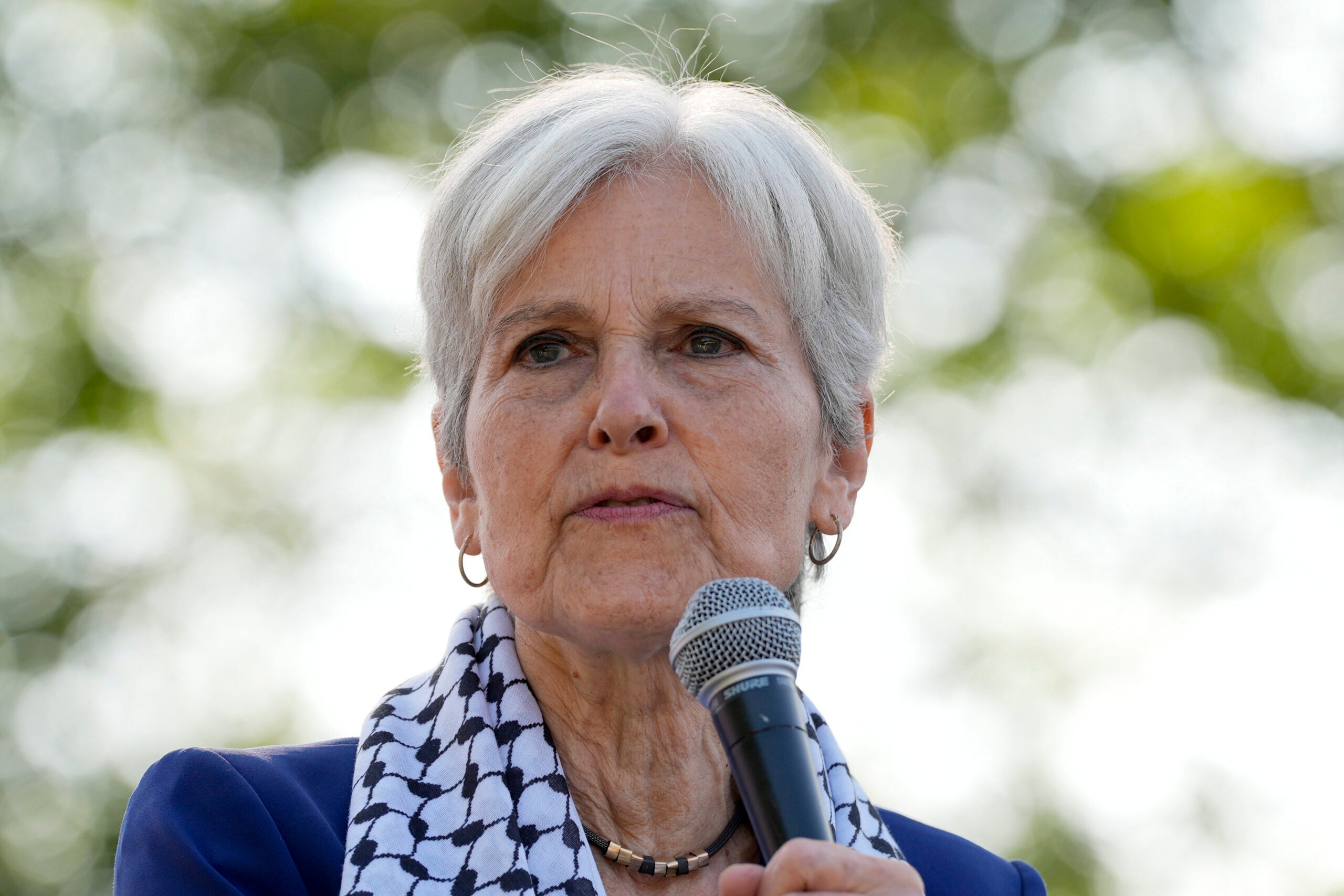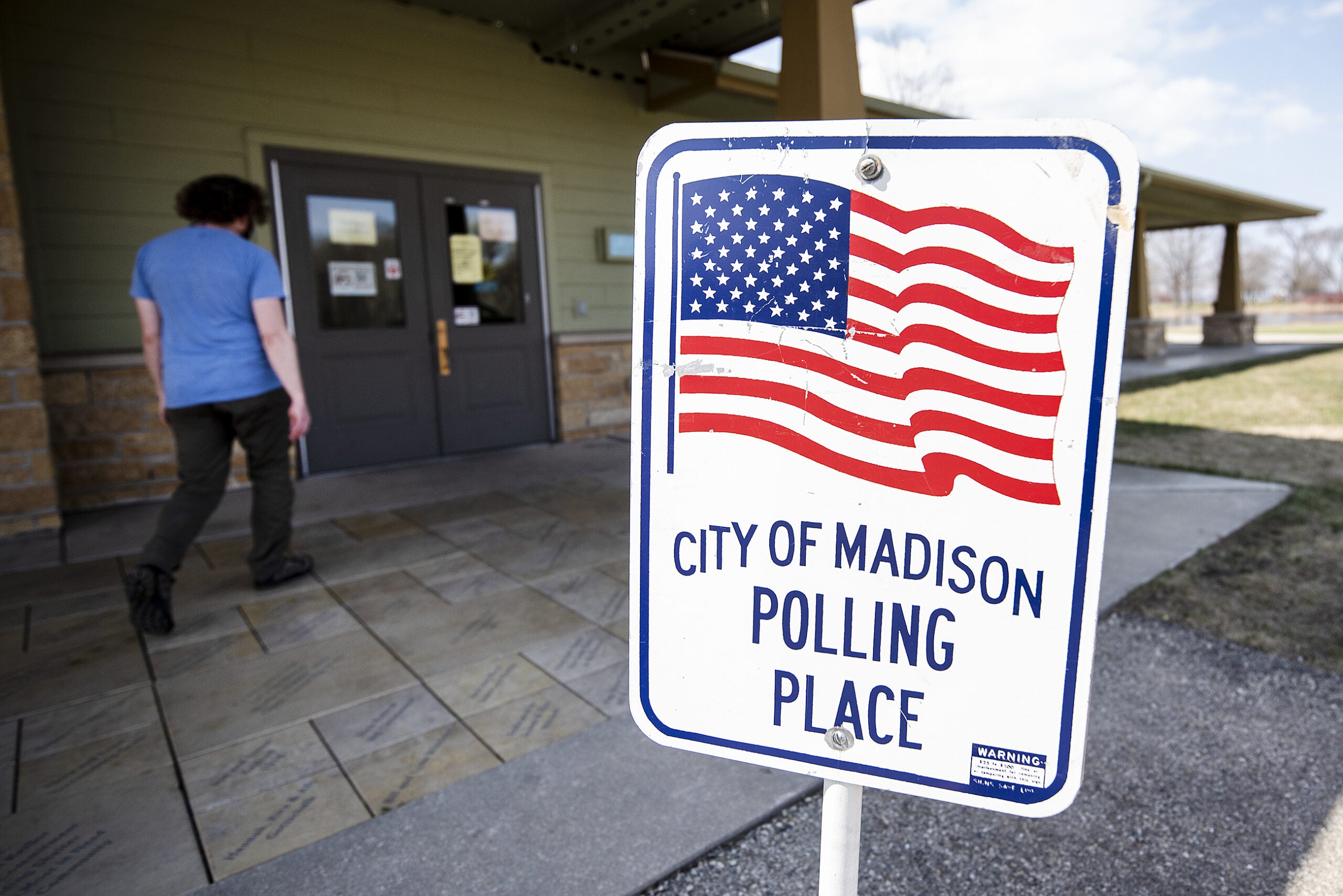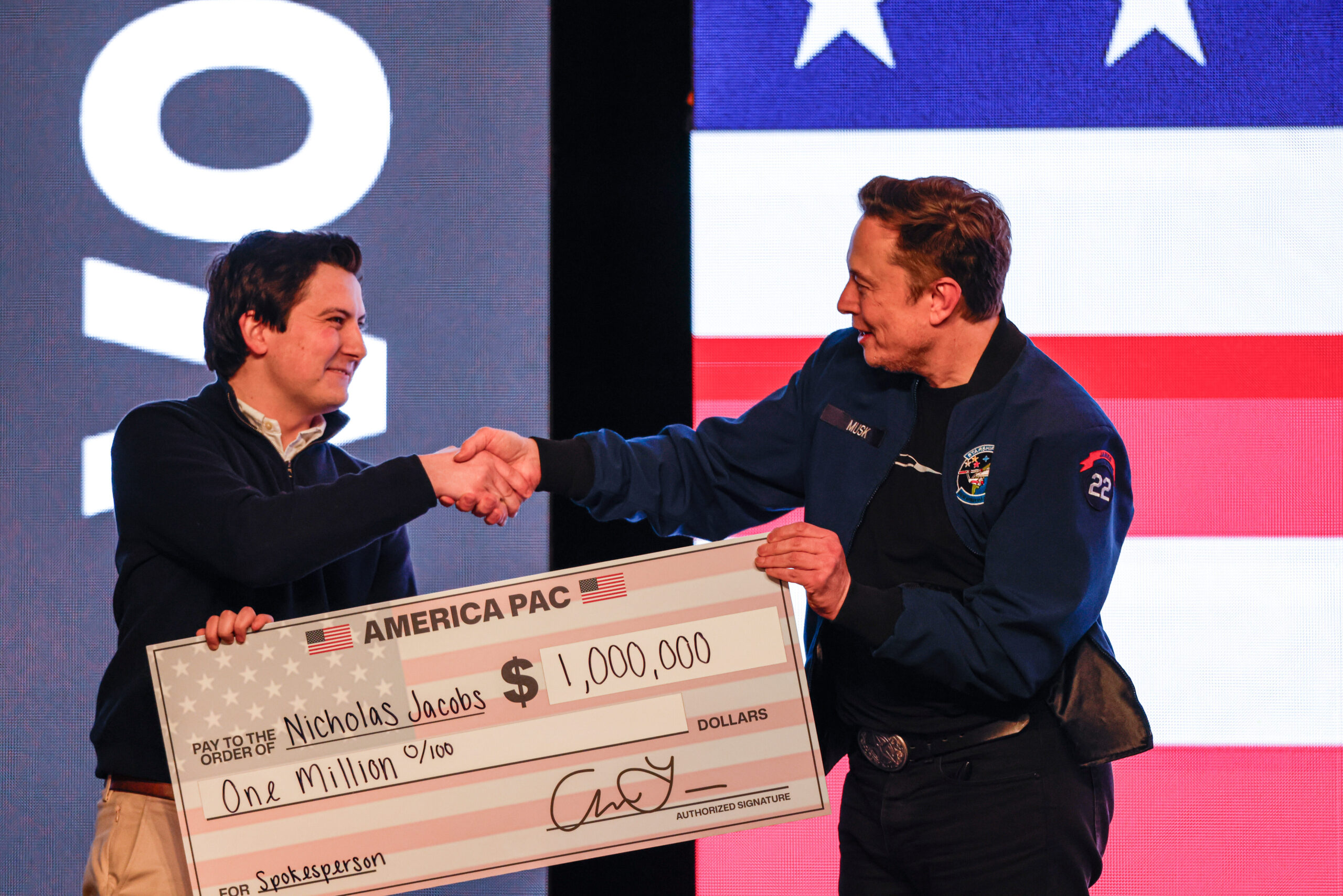Wisconsin’s Supreme Court will not take up a challenge from Democrats, who sought to block Green Party presidential candidate Jill Stein from Wisconsin ballots.
The unsigned order issued Monday by Wisconsin’s high court clears the way for Stein to appear on the Nov. 5 ballot in a state known for its razor-thin election margins.
Last week, the Democratic National Committee filed what’s known as a petition for original action, asking the Wisconsin Supreme Court to take up the case.
News with a little more humanity
WPR’s “Wisconsin Today” newsletter keeps you connected to the state you love without feeling overwhelmed. No paywall. No agenda. No corporate filter.
The petition argued Stein and Butch Ware, the Green Party’s candidates for president and vice president, are legally barred from appearing on Wisconsin’s November ballots because the Greens lack the statewide office holders or state legislative candidates necessary to nominate presidential electors.
The petition asked the high court to order the Wisconsin Elections Commission to disqualify the Green Party from the presidential ballot on or before Aug. 27. That’s when the commission is scheduled to meet to certify candidates for the November election.
But in a brief order issued the day before the WEC’s scheduled meeting, Wisconsin’s high court declined to hear the case.
“I don’t think the Democrats should have brought this forward in the first place,” Pete Karas, an elections chair for the Wisconsin Green Party said Monday afternoon. “They were really disenfranchising voters from voting who they felt they wanted to be president and voting their conscience.”
But Adrienne Watson, a DNC spokesperson, called the ruling “disappointing.”
“The Wisconsin Green Party’s violation of the law is crystal clear,” Watson said in a statement. “WGP did not meet either of Wisconsin’s two simple requirements to nominate candidates, so it should not be on the ballot in November.”
Stein last appeared on Wisconsin ballots in 2016, when she won about 31,000 votes.
That year, former President Donald Trump beat Hillary Clinton in Wisconsin by less than 23,000 votes. In 2020, President Joe Biden edged out Trump in Wisconsin by an even smaller margin of less than 21,000 votes.
The Wisconsin Insitute for Law and Liberty, a conservative law firm, provided legal representation to a Green Party member and a libertarian who sought to intervene in the case. The Republican Party of Wisconsin also asked to intervene in the case on the Green Party’s behalf.
In a statement Monday, Wisconsin’s Republican Party celebrated the ruling.
“For years, Democrats have silenced and disenfranchised Wisconsin voters by removing inconvenient candidates from the ballot,” Wisconsin GOP Chair Brian Schimming said. “This time around, their undemocratic schemes have failed. If Democrats hope to win over voters, they will have to do so through earnest persuasion instead of disqualification.”
When it convenes Tuesday, the Elections Commission is set to review two other challenges seeking to bar minor party candidates from November’s ballot, according to the meeting agenda.
One complaint filed by Republicans seeks to disqualify Shiva Ayyadurai. The other from Democrats asks the WEC to disqualify Cornel West.
Although independent Robert F. Kennedy, Jr. ended his campaign last week, he is expected to appear on the Wisconsin ballot, according to WEC materials that found his petition to be valid.
Editor’s note: WPR’s Anya van Wagtendonk contributed reporting to this story.
Wisconsin Public Radio, © Copyright 2025, Board of Regents of the University of Wisconsin System and Wisconsin Educational Communications Board.







